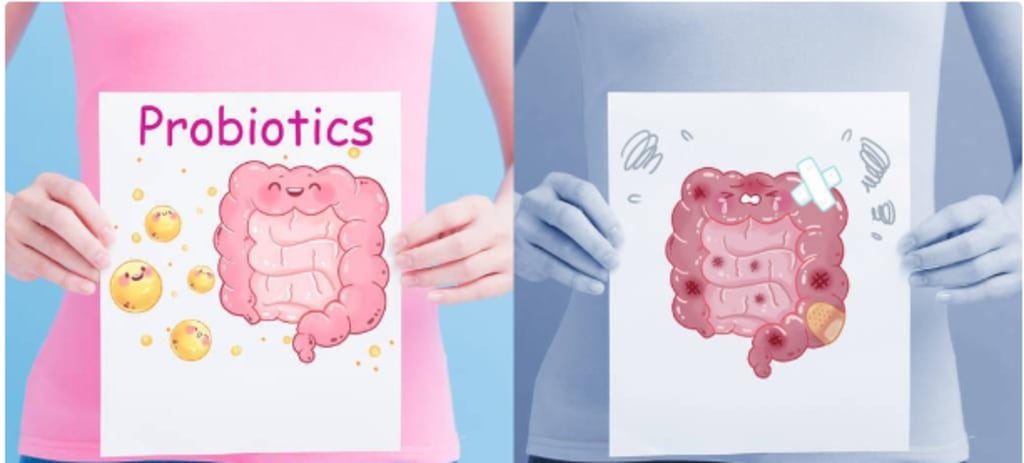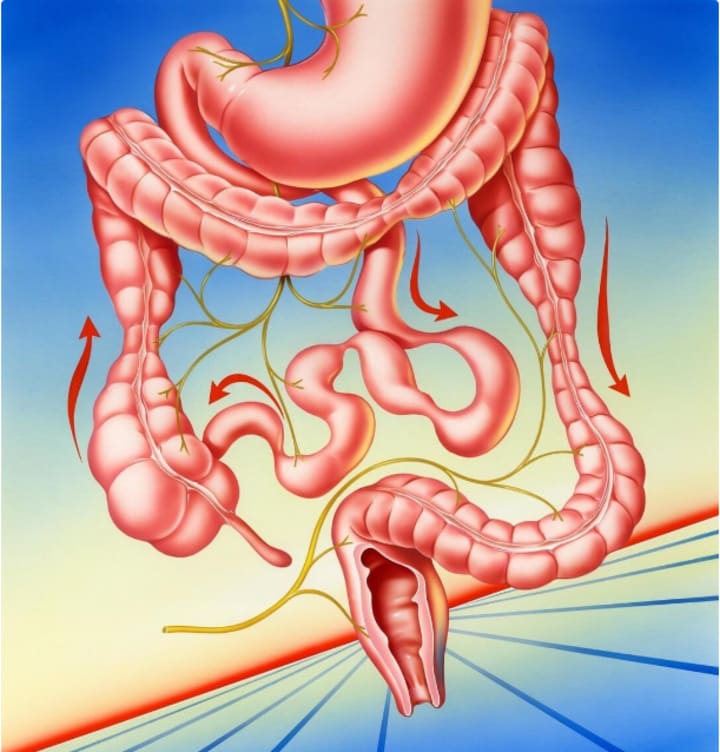
Many patients come to the hospital complaining of unformed stools, poor bowel movement, or a feeling of incomplete evacuation. Some people are very frightened after reading online propaganda that unformed stools may be a sign of bowel cancer. Does it need to be treated?
First of all, we need to understand what kind of stool is normal
Normal stool should be 1 time a day, a few people have 2 times a day or 1 time in 2-3 days. Normal stools appear yellow or yellow-brown. If you eat more green vegetables, your stool will be greenish; if you eat more meat, your stool will be brownish-yellow; if you eat pig's blood, pig's liver, or take certain Chinese medicines, your stool will be black. The stool should be soft in the shape of strips, with a standard shape like a banana, not sticking in the commode, floating on the surface, and flushing with water. Paste-like stools that are not dry and lumpy are also normal. The normal stool has a slight odor, meat lovers will smell a little heavier, and vegetarians taste lighter.
What is unformed stool?
Unshaped stool refers to repeatedly soft stools such as mud, see water then spread, or with the indigestible matter, and diarrhea is different from the general number of bowel movements may not increase, but also a slight increase in the number of times. There is the simplest way to determine if a stool is formed, called the Bristol stool classification. Under normal circumstances, our stools should be in category 4. Category 1, 2, and 3 stools are less watery and have harder stools, and are commonly found in people with constipation. The fifth, sixth and seventh categories of stools have a gradually increasing water content and the stools become unformed, and we often refer to the fifth, sixth, and seventh categories of the Bristol stool classification when we talk about unformed stools.
What are the physiological causes of irregular bowel movements?
Physiological causes are those that have a clear cause, usually transient, and will soon return to normal stools. Common causes include changes in living environment, diet, drugs, psychological reasons, etc.
1, change of living environment: many people who suddenly come to a new place will appear diarrhea, the people call it water and soil. Modern scientific research has shown that changes in the environment affect the physiological and psychological conditions of people and bring about changes in the internal environment of the human body, especially the endocrine, human microbiological ecology, nervous system, and immune system. In particular, the environmental microbial ecology has changed, coupled with changes in diet, affecting the original intestinal microorganisms, intestinal flora imbalance is the main cause of irregular bowel movements.
2, the cause of the diet: some people who eat cold, spicy food or drink alcohol will appear unformed stool, some people are intolerant to certain foods, after eating will also appear unformed stool, common is lactose intolerance, which is complex metaplasia, according to research at least 50% of people to certain foods produce different degrees of adverse reactions, more common symptoms are abdominal pain diarrhea, some people can show For the stool is not formed.
3, the cause of drugs: many drugs in the treatment of disease at the same time will produce certain side effects, a common manifestation is digestive tract symptoms including irregular stools. Common drugs such as Chinese medicine Niuhuang detoxification tablets, three yellow tablets, as well as Panaxia leaves, hemp, rhubarb soda tablets, etc., tumor chemotherapy drugs such as idarubicin, epirubicin, paclitaxel, fluorouracil, etc., pro-gastrointestinal drugs such as mosapride, itopride, etc., laxative drugs such as magnesium sulfate, phenolphthalein, lactulose, polyethylene glycol, etc., some antibiotics can also cause unformed stools.
4, mental psychological reasons: people often say that the gastrointestinal tract is a barometer of emotions, when we are sad, depressed, sad, or frustrated, the gastrointestinal tract function will change significantly. In the emotional stimulation, the body's endocrine system disruption will let the gastrointestinal peristalsis accelerated, and intestinal fluid secretion hyperactive, thus causing the symptoms of unformed stool.
Fourth, what are the pathological causes of unformed stools?
Pathological causes are caused by a variety of diseases that cause unformed stools. Common diseases are various causes of indigestion, gastrointestinal disorders, intestinal infections, intestinal tumors, intestinal flora dysbiosis, etc.
1, indigestion: indigestion is divided into two kinds of functional indigestion and organic indigestion. Commonly functional indigestion is due to gastrointestinal dysfunction caused by indigestion. Some liver and gallbladder diseases, pancreatic diseases, diabetes, etc. can cause organic indigestion. Indigestion can lead to increased food residues, stimulating excessive intestinal peristalsis and reduced water absorption in the intestine, causing loose, increased, and unshaped stools.
2, gastrointestinal dysfunction: also known as functional gastrointestinal disease, common is irritable bowel syndrome, to be manifested as abdominal pain, bloating, diarrhea and constipation. Abdominal pain mostly appears after eating and can be relieved after defecation or exhaustion. Diarrhea usually occurs early in the morning or after eating, 3 to 5 times a day. The stools are unformed and may contain white or clear mucus, but diarrhea does not interfere with rest at night.

3, intestinal infections: common diseases such as intestinal parasitic infections, viral infections, bacterial infections, etc. Intestinal infections can lead to decreased intestinal absorption, increased exudation, and faster peristalsis, causing diarrhea or unformed stools.
4、Intestinal tumor: common is colorectal cancer, change in bowel habits is often a signal of mid to late-stage colorectal cancer, which is characterized by increased frequency of bowel movements, unformed stools, diarrhea, or constipation. So if it is a middle-aged or elderly person, the sudden appearance of unformed stools, accompanied by abdominal pain, blood in the stool, weight loss, abdominal mass, and other symptoms need to be taken seriously.
5, intestinal flora imbalance: under normal circumstances, the intestinal probiotic bacteria, neutral bacteria, and harmful bacteria, according to a certain ratio of combination, mutual constraints, interdependence, in quality and quantity to form a kind of ecological balance, called intestinal flora balance. Once the internal and external environment of the body changes, probiotics are inhibited, harmful bacteria growth, or excessive growth of harmful bacteria in the small intestine, will cause intestinal flora imbalance, the common symptom is abnormal bowel movements, which can be manifested as unformed stool or diarrhea.
Do you need to treat irregular bowel movements?
Unshaped stools are a common clinical manifestation of sub-healthy people, most of which are physiological and last for a short period, and can be restored to normal bowel movements by adjusting diet and lifestyle.
If you have irregular bowel movements for a long period, especially for more than 2 months, you should take it seriously and go to the hospital promptly. If there are red or white blood cells in the stool, or if the stool is positive for occult blood, it is best to have a colonoscopy to clarify the intestinal pathology, and a food intolerance test to adjust the diet according to the test results.
For patients with prolonged irregularities in the stool, if no significant abnormalities are found after the relevant tests, symptomatic treatment can be given with the medication. Commonly used medications include montelukast, pectin, diphenoxylate, loperamide, and compound glutamine. Probiotics can also be supplemented to regulate the ecological balance of the intestinal microbiota. Commonly used preparations include Bifidobacterium, Lactobacillus acidophilus, Bacillus licheniformis, and yeast.






Comments
There are no comments for this story
Be the first to respond and start the conversation.